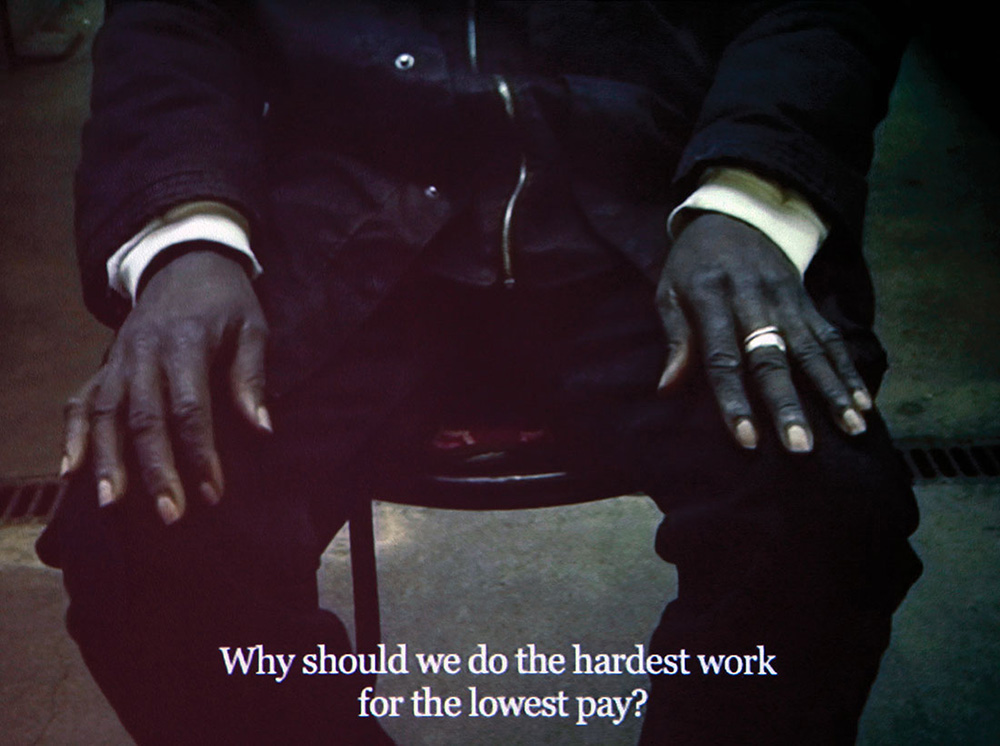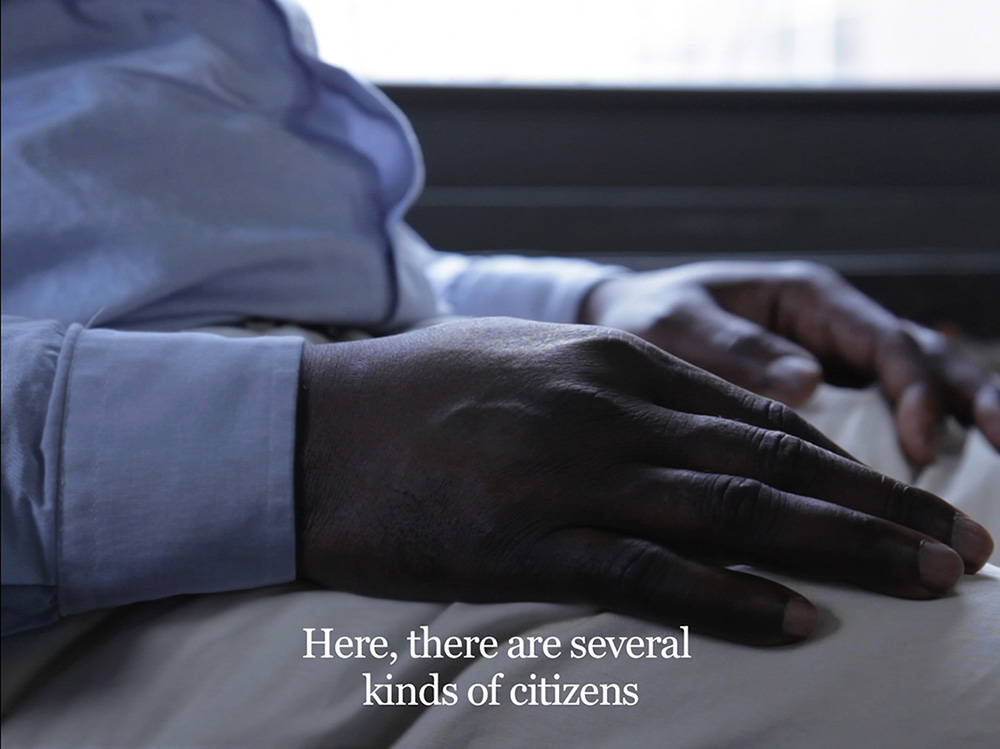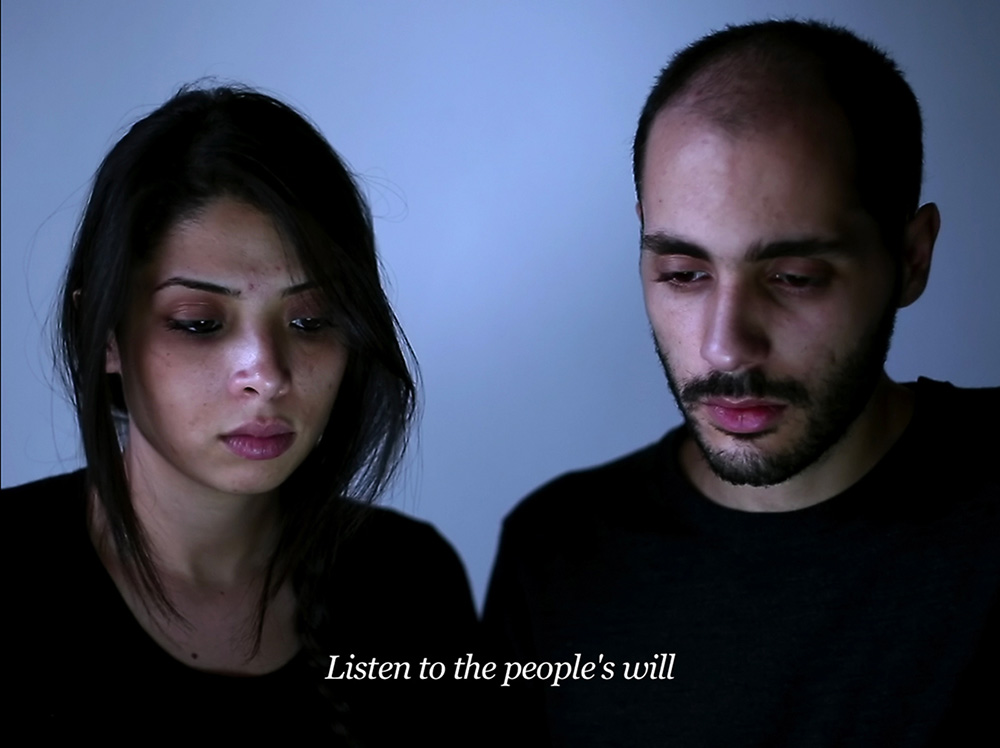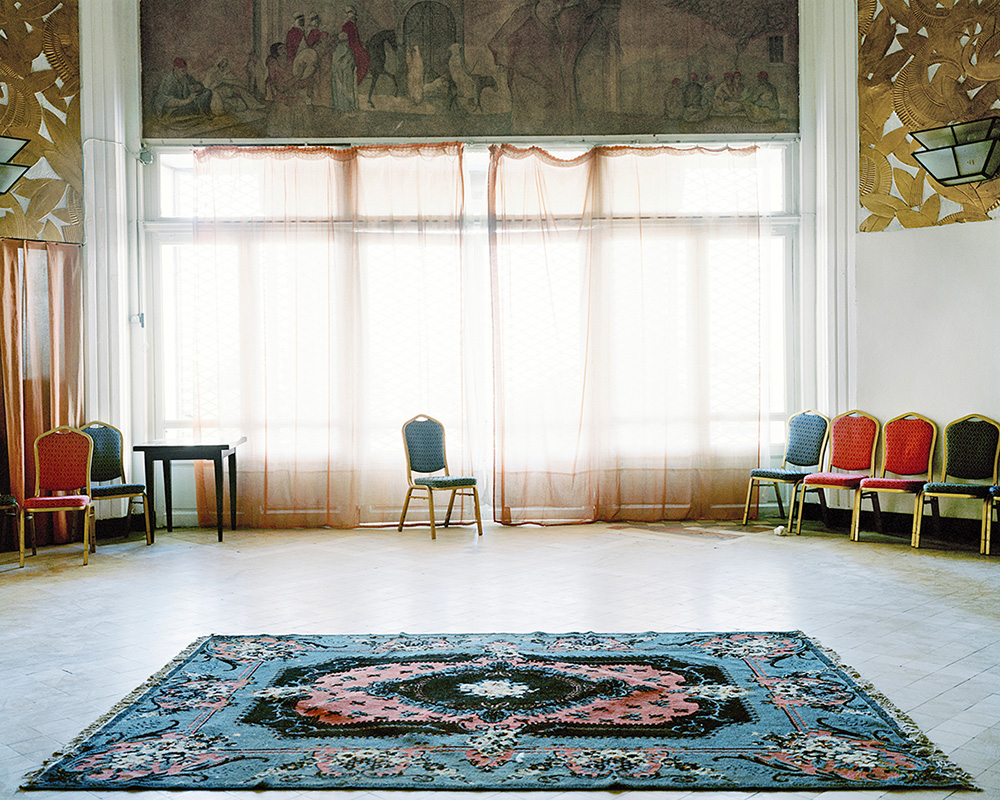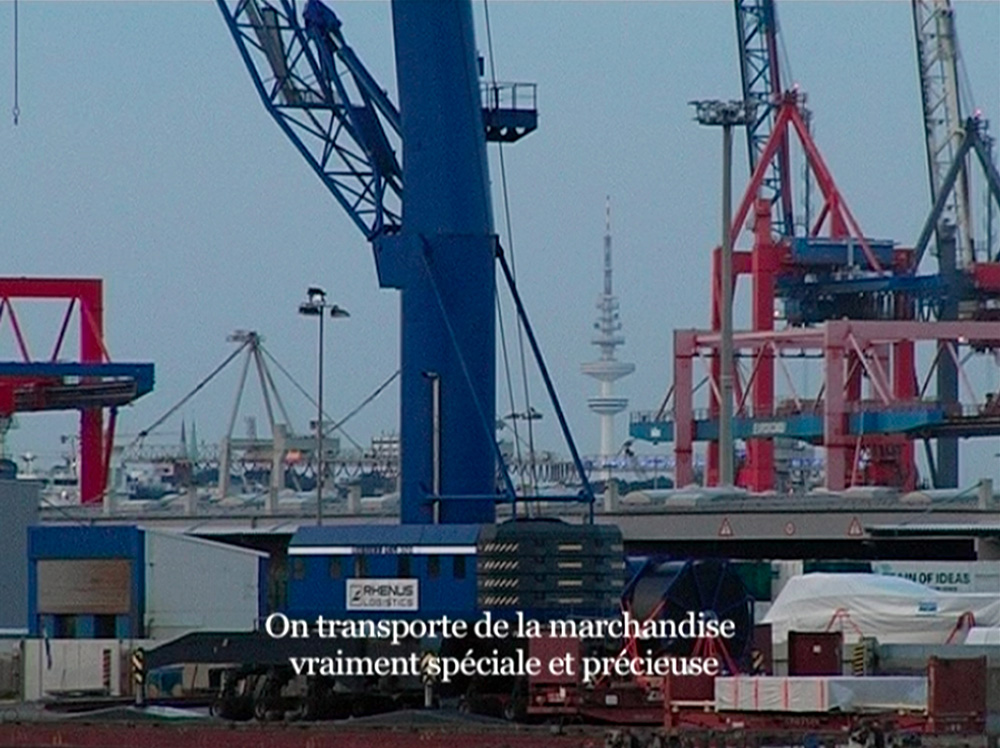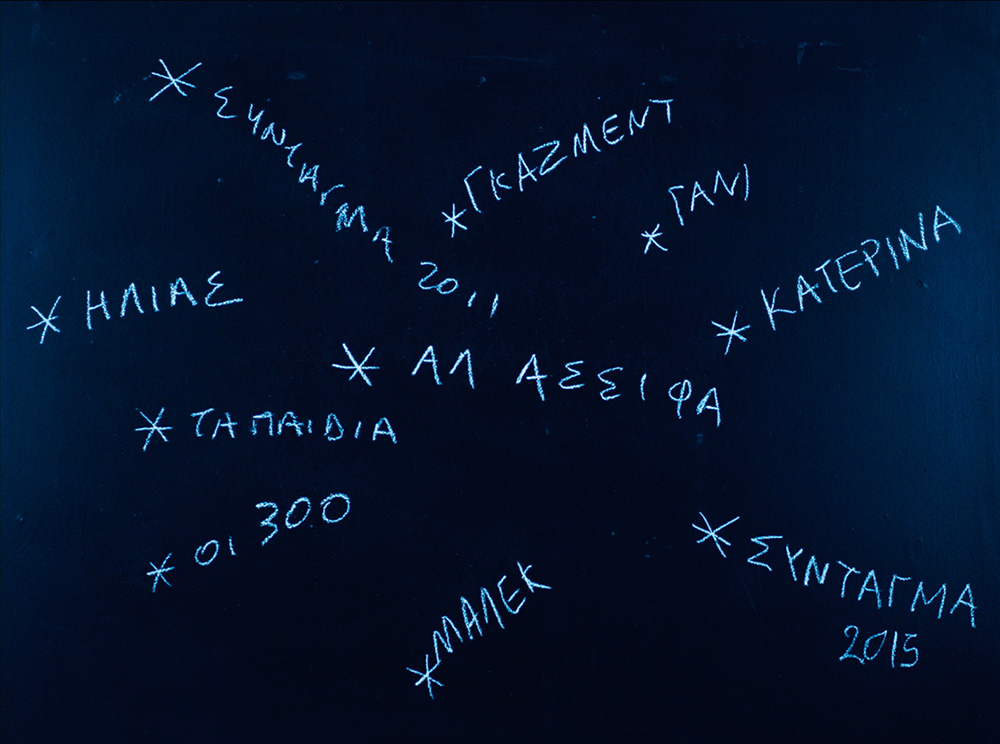ART-PREVIEW: Bouchra Khalili-Blackboard
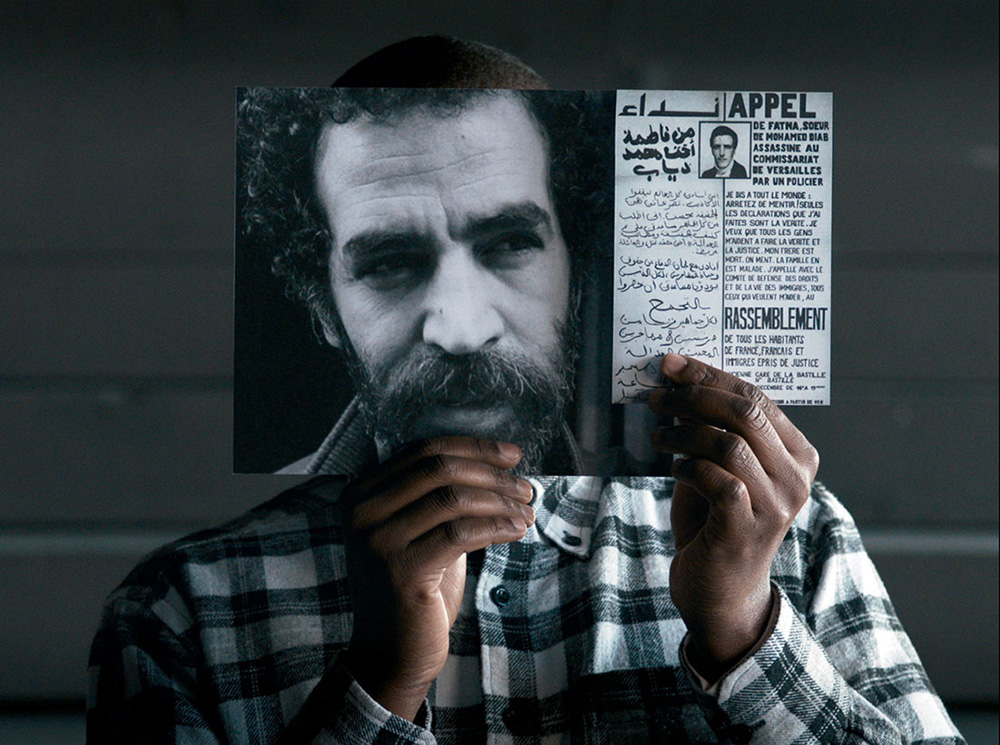 Through video, photography and prints, Bouchra Khalili in her works, articulates subjectivity and collective history, questioning the complex relationships between the singular and civic belonging, calling for a new collective voice to come into being. Many of her videos, experiment with different ways of narrating the journeys of illegal immigrants. The artist does not see these people as migrants, but as members of a political minority, whose journeys are acts of defiance.
Through video, photography and prints, Bouchra Khalili in her works, articulates subjectivity and collective history, questioning the complex relationships between the singular and civic belonging, calling for a new collective voice to come into being. Many of her videos, experiment with different ways of narrating the journeys of illegal immigrants. The artist does not see these people as migrants, but as members of a political minority, whose journeys are acts of defiance.
By Dimitris Lempesis
Photo: Jeu de Paume Archive
Bouchra Khalili’s solo exhibition “Blackboard” at the Jeu de Paume brings together a large selection of works from the past ten years. Her films, video installations, photographs and silkscreen prints suggest civic platforms, from which members of minorities perform their strategies of resistance to arbitrary power. The exhibition features “The Seaman” (2012), a first-person account by a Filipino sailor reflecting on the mechanisms of globalised trade from his perspective of a worker in perpetual exile; “The Mapping Journey Project” (2008–11) and “The Constellations Series” (2011) as well as “The Speeches Series” (2012–13), the trilogy of videos: “Mother Tongue”, “Words on Streets” and “Living Labour” that examine belonging from different perspectives: language, citizenship, and class. “Foreign Office” (2015) combines a digital film, a series of photographs and a silkscreen print. Produced in Miami and its area, “Wet Feet” (2012) is a photo series examining the metonymic traces left by individuals forced to travel illegally from the Caribbean, and who eventually reached US soil. “The Tempest Society” was a milestone in the artist’s work, illuminating her long-term reflection on radical equality and art as a civic platform. “Twenty-Two Hours”, a new work in film, will have its French premiere at the Jeu de Paume. It investigates Jean Genet’s commitment to the Black Panther Party, and reflects on the essential connection between poetry, collective emancipation and allyship. In the powerful 8-chanel video installation “The Mapping Journey Project” (2008-11), the formal elements are pared to necessities: a paper map of the world, a hand holding a marker, drawing a pattern of mysterious lines on the map across oceans and borders, a voice of a man or a woman telling a first-person story of immigrating illegally from the Middle East or Africa to Europe in search of a better life. To find her subjects the artist traveled to the arteries of trafficking and trade (Marseilles, Ramallah, Bari, Rome, Barcelona and Istanbul). She didn’t go searching for her subjects but rather waited for an occasion to meet them. In just a few minutes, each person traces and narrates their journeys. At other times, the pen rests on one spot for a while, making a thick pool of ink as a person described having to wait there for months for another boat to come. No matter the language, they all tell horror stories of travel companions dying or moving through miles of desert on foot. Their trips took anywhere from a few months to five years. The work attempts to be neither sentimental nor didactic. While literal maps are the central visual element of “Mapping Journey Project”, they are employed only to be subverted. The blue water and the multi-colored countries become graphic abstractions as each protagonist draws lines across and through them. The abstract traces are realized further in Khalili’s “The Constellation Series” (2011). Composed of eight silkscreen prints, each them, translates the voyages recounted in the films into the form of star constellations similar to those that have been used in astronomy for centuries. Stripped of their borders and resisting containment, these journeys become fluid records of travels through space and time. The last work in the exhibition, “Foreign Office” (2015), is made up of a film, a series of photographs and a print. Produced in Algeria, the project is part of the artist’s investigation over the last ten years into the forms and discourses of resistance as expressed by the members of minority groups that arise from these colonial and postcolonial histories. Bouchra Khalili revisits the period spanning from 1962 to 1972 when Algiers became the “capital of the revolutionaries” after Algeria’s independence. The city opened its arms to the many militants of African, Asian and American liberation movements such as the International Section of the Black Panther Party, the ANC (African National Congress), the PAIGC (African Party for the Independence of Guinea and Cape Verde) and even the now-forgotten Popular Front for the Liberation of Oman and the Arab Gulf. Taking as a starting point this facet of Algerian history whose piecemeal transmission, in the form of legend, has frozen it in the past, the film portrays two young Algerians of today who recount this history, questioning its traces and the reasons why it has been forgotten by their generation. Questions surrounding oral tradition, language and their relationship to the story and to history are at the film’s core and reveal an alternative historiography. The series of photographs establishes an inventory of the different places that welcomed these liberation movements based in Algiers, while a map made by the artist reinstates them within the city’s contemporary topography.
Info: Curators: Bouchra Khalili, Juan Antonio Álvarez Reyes and Marta Gili, Jeu de Paume, 1 place de la Concorde, Paris, Duration: 5/6-23/9/18, Days & Hours: Tue 11:00-21:00, Wed-Sun 11:00-19:00, www.jeudepaume.org
